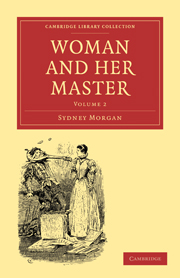Summary
Whatever were the faults of Livia, they appear to have mainly emanated from an intense maternal instinct. Ill-directed by circumstances, and by ambition, the master passion of the age, she suffered that most acute of all penalties under which the human heart can break — maternal disappointment: for the mother of Tiberius was eminently and fearfully taught to feel—
“how much sharper than a serpent's tooth
Is an ungrateful child.”
The son, pupil, and protégé of Livia, gave at first the happy promise of a benevolent reign, by an immediate acknowledgment that he owed his power to his mother, and by the prospective advantages he might derive from her experience. Livia still held a place near the person of her imperial son, retained an influence over his actions, a voice in his councils; and while she continued to do so, the wisdom, policy, and liberality of his government were conspicuous. It was during this brief interval of sanity in the life of a maniac or a monster, that the Roman people, among other blessings, enjoyed a liberty, analogous to the free press of modern times—freedom of speech, the unrestrained expression of public opinion; “for, in a free city, (said the dissimulating expositor of his mother's wisdom,) in a free city, the tongue of every man should be free.” Taxes, too, were gradually lessened, and luxury restrained by salutary regulations. At home all was peace; abroad all was victory: Germanicus conquered the barbarians of the north, and Tiberius won the hearts of the Romans.
- Type
- Chapter
- Information
- Woman and her Master , pp. 79 - 88Publisher: Cambridge University PressPrint publication year: 2010First published in: 1840

